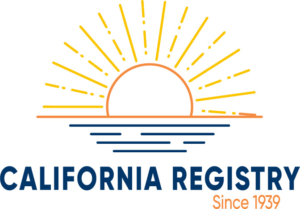What Is Medicare?
Medicare is a federal health insurance program created in 1965 to help older Americans and certain individuals with disabilities afford essential healthcare. It primarily serves:
- People aged 65 and older
- Individuals under 65 with certain disabilities
- People of any age with End-Stage Renal Disease (ESRD)
The program is managed by the Centers for Medicare & Medicaid Services (CMS), while enrollment is handled through Social Security.
Understanding Medicare Coverage
Medicare is divided into multiple parts, each covering different services:
Part A – Hospital Insurance
Covers inpatient hospital stays, skilled nursing facility care, hospice care, and some home health services. Most people receive Part A without paying a premium, as it’s funded by payroll taxes paid during employment.
Part B – Medical Insurance
Helps cover outpatient care like doctor visits, physical therapy, diagnostic tests, durable medical equipment, and ambulance services. Part B requires a monthly premium, which varies based on income.
Part D – Prescription Drug Coverage
Helps cover the cost of prescription medications. Enrollment is optional and can be complex, so it’s best to consult with a Medicare counselor or specialist for guidance.
Medigap – Supplemental Insurance
Medigap (Medicare Supplement Insurance) is sold by private insurers to cover costs not paid by Original Medicare, such as copayments and deductibles. These plans can also offer additional benefits like emergency medical care while traveling abroad.
Who Is Eligible?
You’re eligible for Medicare if you meet any of the following:
- You’re 65+ and qualify for Social Security or Railroad Retirement benefits
- You’re under 65 and have received Social Security disability benefits for at least 24 months
- You have permanent kidney failure requiring dialysis or transplant (ESRD)
- You’re 65+ and a U.S. citizen or legal resident living in the U.S. for at least five years
If you don’t qualify automatically, you may enroll voluntarily and pay premiums for coverage.
How and When to Enroll
Enrollment is handled through your local Social Security office. You should apply three months before your 65th birthday to avoid late penalties. If you delay, your coverage may be postponed, and your premiums could be higher.
What Medicare Covers
Part A includes:
- Hospital stays: Covers most costs for the first 60 days. After that, coinsurance applies.
- Skilled nursing care: Fully covered for the first 20 days after a 3-day hospital stay.
- Hospice care: For patients with a life expectancy of less than six months, certified by a doctor.
- Home health care: Covered when ordered by a doctor and provided by a Medicare-approved agency.
Part B includes:
- Doctor visits and preventive care
- Outpatient services and lab work
- Physical, occupational, and speech therapy
- Ambulance transportation
- Durable medical equipment like wheelchairs or walkers
What Medicare Does Not Cover
Medicare does not cover everything. Exclusions include:
- Most long-term or custodial care (help with bathing, eating, etc.)
- Routine dental care and dentures
- Eye exams for glasses and hearing aids
- Cosmetic surgery
- Services outside the U.S. (except in specific cases)
- Most prescription drugs, unless enrolled in Part D
Choosing How You Receive Benefits
You can receive Medicare benefits in two main ways:
Original Medicare (Fee-for-Service)
You can see any provider that accepts Medicare. Most people pair it with a Medigap plan to help with out-of-pocket costs. This option offers flexibility but may involve more paperwork and higher costs if you don’t have supplemental insurance.
Medicare Advantage Plans (HMOs or PPOs)
Offered by private insurance companies approved by Medicare, these plans often include Part A, Part B, and sometimes Part D. Many offer additional benefits like vision, dental, or hearing coverage.
Pros of Medicare Advantage:
- Lower out-of-pocket costs
- Coordinated care through provider networks
- Extra benefits not covered by Original Medicare
Cons:
- Limited to specific providers and networks
- May require referrals for specialists
- Less flexibility when traveling or seeking care outside your network
Help for People with Low Incomes
Medicare offers special programs for those who need financial assistance:
- Qualified Medicare Beneficiary (QMB): Pays for Part A and B premiums, deductibles, and coinsurance
- Specified Low-Income Medicare Beneficiary (SLMB): Pays for Part B premiums only
To apply, contact your local Medi-Cal, welfare, or social services office.
How our FREE service works
Our family-first process will help you find the right senior living community for your loved one.
Connect with an expert senior living advisor
Review a personalized list of communities
Tour sites and finalize the placement
Do You Need to Find Care Right Away?
Our Senior Living Advisors can help with:
- Hospital discharge
- Rehab Facility discharge
- Alzheimer’s & Dementia care


